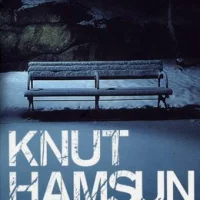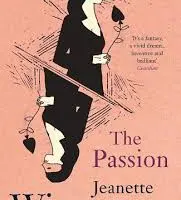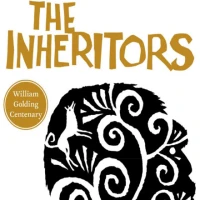Far Eastern Tales, by W. Somerset Maugham
When I was a kid, Maugham was often held out as the model of a great short story writer, almost the definition of one. Along with Saki he was as good as it got. My paternal grandfather, Jim, was a huge fan, as were many of his generation.
Literary reputations though are fragile things, and what seems timeless mastery can for no obvious reason just fall into obscurity. Maugham hasn’t suffered quite that fate, he’s still widely in print after all, but his star has definitely waned.
Perhaps in Maugham’s case it’s because the world he describes so well is no longer one contemporary readers recognise. He was primarily a writer of Britain between the wars, of the declining days of Empire and of a Britain yet to experience post-war Austerity and loss of influence.
Jim was born in 1920. He lived and worked in South Africa for a while, raised his family there, and while as a self-educated proudly working class Glaswegian he wasn’t anything like Maugham’s characters he’d certainly have recognised his world. Perhaps it’s as simple as that. Maugham was and is a great writer, but he’s a great writer of a world that’s no longer with us. He writes expertly of a country with few remaining inhabitants.
Far Eastern Tales is a collection of ten Maugham short stories, all of them set in the British far Eastern colonies. They vary in length and style, from shaggy-dog stories like Mabel to tales of isolation and murder like Footprints in the Jungle. Two of them, Mabel and the End of the Flight, are basically the same story once told as comedy and once as horror (both involve a man mysteriously and relentlessly pursued, in Mabel by a prospective wife and in The End of the Flight by a wronged Sumatran native intent on revenge).
Maugham’s Asia is a lonely place. The British are few and thinly stretched across a vast territory. Issues of race and class bar them from real friendships with the locals, making for intensely parochial ex-pat communities and pockets of men left alone too long in out-of-the-way stations deep in the jungle.
Their ambition was to be like everybody else. Their highest praise was to say that a man was a damned good sort.
As the quote suggests, these aren’t the best and the brightest as a rule. The servants of Empire tend to be bluff and unimaginative sorts. An excess of imagination isn’t an asset when you’re two days from your nearest neighbour, and an unquestioning assumption of your own entitlement and authority can carry a lot of weight when facing down locals with machetes and a grievance.
Nowhere is this made more explicit than in the rather marvellous fourth story, The Door of Opportunity. It features a particularly brilliant young administrator and his adoring wife. They are cultured, intelligent, a cut above what they see as the generality of Colonial mediocrity. He learns the local languages, they dream of championing indigenous arts and combining the best of the world they left with the best of the world they now find themselves in.
Maugham understands, as the couple in The Door of Opportunity do not, that colonialism is an exercise in economic exploitation backed by military might. The British aren’t in Asia to appreciate fine teak-work. They’re there to extract resources and money.
It was with The Door of Opportunity that this collection really started to shine for me. The first tale was much as I expected, featuring a club where people drank gin and played bridge, and an unfolding tale of murder in distant places. The second, Mabel, was easily the weakest, and the third featured a man dying from what he believed to be a native curse. So far it seemed, so as expected.
That third though, P.&O., turned out not to be quite what I thought it would be. Maugham it turns out is an expert at the mid-story swerve, where you discover that the story you thought you were reading isn’t the real story at all.
In P.&O. a middle-aged woman encounters a fellow passenger who slowly declines as the voyage continues, having been promised he’ll never live to see land. That’s fine, but what’s interesting isn’t the supposed curse but the lessons the woman takes from her encounter with another’s mortality.
P.&.O., like many of the stories here, is also a neat study in hypocrisy. Here the first-class passengers on an ocean-liner plan a Christmas party, but don’t wish to appear stand-offish by not inviting those in second-class:
The scheme was at last devised to invite the second-class passengers, but to go to the captain privily and point out to him the advisability of withholding his consent to their coming into the first-class saloon.
After The Door of Opportunity comes The Hidden Talent, a cautionary tale of why sometimes old acquaintances are best left in the past. By this point the collection is seriously on a roll. The Hidden Talent is heartbreaking, probably my favourite of the collection and it shows Maugham’s tremendous insight as a writer. Maugham gets people, and that of course is why he was so highly regarded.
From there we’re off to the races. Before the Party is a deliciously horrifying tale of the gap between public and private lives, brilliantly exposing the acceptance of ugly realities as long as they’re far away and decently covered up. It’s followed by Mr. Know-All, which would be spoiled if I said anything more about it at all but which shows again a nice grasp of complexity of character.
Then comes Neil MacAdam, another candidate for best in the bunch, featuring a handsome new assistant to a remote museum who is too innocent to recognise the danger the curator’s wife’s interest in him represents. He finds himself in a situation any noir-writer would be proud of, and like any good noir the situation soon takes a deadly momentum of its own as the heat and isolation act as a pressure cooker to deadly effect.
The End of the Flight, which I mentioned above, is a dip in quality again. I admit that I don’t find stories in which natives have apparently supernatural powers terribly exciting, but the real issue is that the reliance on plot leaves less room for Maugham’s gift for motive.
The collection ends though on a high, with The Force of Circumstance in which a new wife joins her husband on a distant Malay plantation and comes to learn the compromises he made in order to survive the long years before her arrival. Maugham understands hypocrisy, and why unpleasant as it may be it’s sometimes the best option available.
A classic Maugham theme here is the clash of expediency and idealism, romance even. More than one character sees Empire as advertised, as a civilising mission, as a chance to bring culture and order to places sorely in need of it. Maugham however is always aware of the gulf between appearance and reality, never forgetting that our presence is both uninvited and unwanted.
To thrive in Maugham’s Far East you have to be a hypocrite. To be otherwise is either to invite disaster or to embrace brutality. You have to be able to lie to yourself, at least a little, about the realities of what is ultimately an armed occupation. That perhaps was what most surprised me here. I knew Maugham as a writer of Empire, I had no idea however that he saw so clearly the contradictions inherent in it.
Maugham doesn’t condemn his characters or their world, he isn’t that facile and these aren’t polemics (and I have no idea as to his personal politics). Maugham describes, and he doesn’t look away as he does so. That’s probably why, out of fashion as he is, he’s still in print.
Other reviews
None I know of, but if I’ve missed some please let me know in the comments. If you are interested at all in Maugham though, Guy Savage has reviewed him extensively over at His Futile Preoccupations, here.















Thanks for the mention. Oddly enough I picked up one of his novels the other day and decided that he’ll be the next old friend I return to. You’re right, he does see Britons in the Far East w/a clear eye. The story you mention reminds me quite a bit (just the outlines) of one I recently read: Before the Dinner Party.
He clearly reuses ideas. The fact two stories here have basically the same plot in a ten story collection shows that. Still, a clear eye is definitely right. I thought that his greatest strength. He’s been unlucky, as has Orwell, to have become a writer of near-nostalgia now when at the time he wasn’t romanticising at all.
I really need to look at his work again. I read Of Bondage in high school and that’s it, although I happen to own more books. But that repetition, would you recommend spacing out the, uh, Maugham experience over a longer stretch?
I spaced them out, and that worked for me. I think too many too close and the technique might show. One story then something else then back for another, not spaced out too long but certainly spaced out, seems about right to me.
As with many short story writers to be fair. Most of them don’t benefit from being downed in one. Of course some do, which is why I always tend to ask others the same question you just asked me when trying someone new.
Despite having tons of Maugham on Mount TBR, I’ve only read “Up at the Villa” and “Ashenden” – both of which I loved. “Ashenden” was of course a collection of short pieces, but with a regular character. I agree it’s difficult with short stories – a whole book of them can just be too much, rather like the collected poetry of someone. For example, I have the collected stories of J.G. Ballard in two fat volumes and those I’ve read are wonderful but I’ve never had the stamina to get through them all….
Don’t recall ever reading WSM ; he’s one of those authors whose work I feel I know via film & TV adaptations (that Painted veil, etc.) yet another now to be added to the growing pile tbr. Thanks for an interesting & stimulating piece.
There’s no of course with me Kaggsy, I don’t know his stuff that well. Definitely agree on the collected editions, I just can’t digest them even when I love them. I’d much rather something slim and actually readable.
Tredynas, he is of that sort I admit. I think a fair view got converted as films or TV plays. I’ll probably read more of his short stories (there’s a More Far Eastern Tales) but it’s not urgent. I liked him, but I didn’t like him as much as say my grandfather did.
Oh, I’m sure I would enjoy this collection, Max. It’s several years since I’ve read anything by Maugham (and only The Painted Veil), but the world you describe here revives some of those memories. He’s good on duplicity and deception, I remember that much…
To this Kipling fan your brilliant description of these stories sounds very enticing indeed.
WSM is possibly the writer who exerted the greatest influence over my life. His Of Human Bondage persuaded me to choose a ‘trade’ as a career instead of following more artistic paths.
Another vote for Ashenden here. I haven’t read much by him, but I am a convert and have a couple on the shelf. I get the impression he can be variable, but these sound great Max. I’ll look out for them.
Jacqui, he’s definitely good on duplicity and deception, very true.
cleanthess, that sounds like a story! Of Human Bondage doesn’t sell the artistic life then I take it?
Ian, will check out Ashenden. Re great, some are great, but of the ten stories Mabel is I think actually fairly poor, The End of the Flight isn’t particularly interesting, and the first one whose title I keep forgetting is solid rather than anything more. There’s great stories here, but the collection is a mixed bag.
It shows in a way how the order matters though. If it had finished up with a run of the first story, Mabel and The End of the Flight my overall impression would probably have been much more negative. As it was though, from the midpoint it felt like it really picked up with End being a bit of a sag but by that time I’d been won over so the impact wasn’t too great.
You made me root out his collected stories in two volumes, entitled The World Over, to re-read. There’s a sine curve but the median is high. I’ve written on a couple of his novels and his mockery of Sir Hugh Walpole in Cakes and Ale. Enter Maugham in the search box.
That sounds right, a sine curve with a high median. To be fair though, produce as many stories as Maugham and that’s not a bad result.
I’m an old-timer who still believes W. Somerset Maugham is one of the best. Wasn’t the short story ‘Rain’ in this collection? ‘Rain’ is one of the greatest stories ever written and takes place in the Far East if I’m not mistaken. .
Not in this one, no. Shame, sounds like I missed a good one.
I suspect he wrote more tales set in the Far East than could comfortably be put in this and More Far Eastern Tales, and Rain was put in some other collection.
The quintessential story about hypocrisy is “Rain” – I’m surprised it isn’t in this collection, as it would be in any collection I made of WSM’s short stories. Sadie Thompson is one of the great characters of short fiction. I agree that “Of Human Bondage” is well worth reading, and I also recommend “The Moon and Sixpence” about a Gaugin-like figure. WSM is of his time of course, and some of the assumptions in his writing can make you wince today. But he was an acute observer of the ex-pat societies through which he travelled, and his short stories in particular are still, in my view, well worth reading.
For another look at Brits abroad in the far east (Singapore, Indonesia and Malaysia), I suggest looking out for “Tales from the South China Sea”, compiled and edited by Charles Allen (Futura Publications, 1983, reprinted 1990, 319 pages). The narrative is drawn from interviews and writings of colonial administrators in the winding down of the administrative system, spanning the late 19th century to just after WWII. Some of the interviewees reference WSM, although the picture painted by their reminiscences is not quite as one-dimensional as many of the WSM stories suggest. True, many characters come across as bluff and hearty, but many were shrewd, intelligent, and had considerable physical courage. What is interesting about their narratives is that many chose to retire and live in the Far East after WWII, becoming citizens of the countries where they had once been administrators, in part, one suspects, because “home” no longer was home and they had become too embedded in the countries they were sent to. (Remember Tusker in Paul Scott’s “Staying On”?). The various perspectives offered through these accounts are quite fascinating.
I loved The Moon and Sixpence, Cakes and Ales and The Trembling of a Leaf. I want to read Of Human Bondage but it’s HUGE.
You’re right, his world doesn’t exist anymore. But Austen’s or Flaubert’s worlds don’t either. We still love them because as you say “they get people”. Maugham is fantastic, as are Fitzgerald or Maupassant with subtly describing the human mind and behaviour. And criticising society at the same time, not openly but you get it anyway through the characters’ reactions.
Good point re Austen and Flaubert, and of course true for Proust too. As long as people don’t change the books remain relevant.
Pingback: the habit of luxury allows you to regard its frills and furbelows with a proper contumely. | Pechorin's Journal
Pingback: “No one has real names anymore,” | Pechorin's Journal